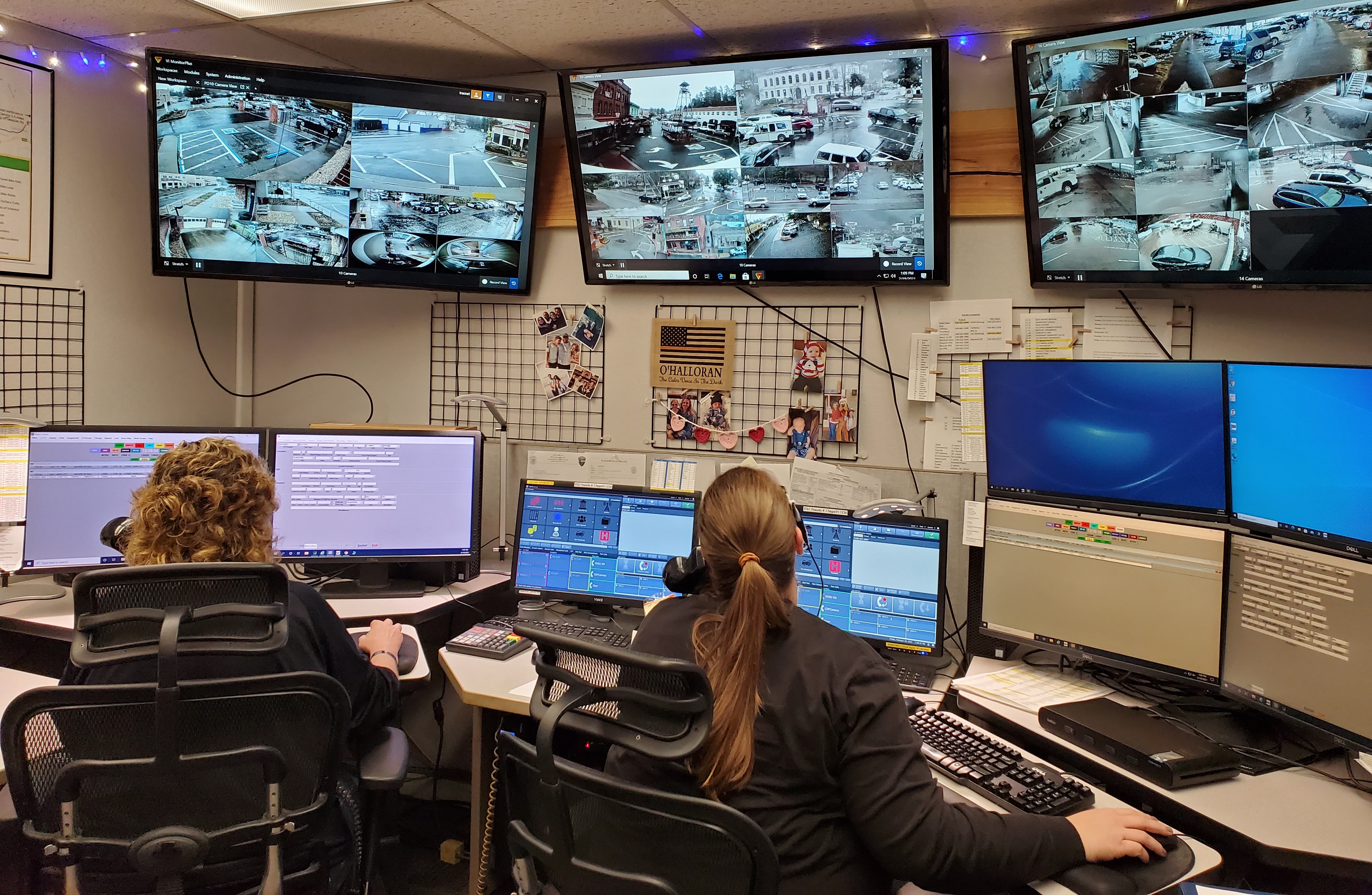The Placerville Police Department Dispatch is a primary answering point for the residents of the City of Placerville. The Dispatch center answers 9-1-1, seven-digit emergency, and non-emergency calls and dispatches police officers to calls for service.
The Dispatch center also assists with records processing and entering information into the records management system.

911 FAQ's
When should I use 9-1-1?
Perhaps the most important thing to remember about 9-1-1 is when to use it. It is not meant to be used to contact the police department about routine matters. 9-1-1 is solely used to report emergencies.
What is an emergency?
An emergency is when IMMEDIATE Police, Fire Department, or Paramedic assistance is necessary to protect life or property
Call 9-1-1: (For emergencies only)
- To report a fire
- To save a life
- To stop a crime in progress or report one that has just occurred
Text 9-1-1: (For emergencies only)
- For the hearing impaired or those with a speech disability
- For those who cannot safely call 9-1-1 in a dangerous situation
- Call if you can, text if can't
Call (530) 642-5280 (Do not call 911)
- When a crime has already occurred and the offenders are no longer on the scene
- For nuisance calls (e.g., barking dogs; landscape and construction noise)
- To obtain information from the police department
- To speak with an officer
- For non-emergency situations
What happens when I call 9-1-1 accidentally and hang up?
The dispatcher will try to call you back. If the dispatcher reaches a child on the phone, he/she will ask to speak to an adult. An officer will be dispatched to the residence if no adult can be reached. If no one answers, an officer will be dispatched. If the line is busy, the dispatcher will attempt to break through with the help of a phone operator to see if the call was a misdial or there is an emergency requiring response.
You already know my address and phone number, so why do you ask me again?
Computers can make mistakes, so we must ask for your address as verification. Also, many people call from a neighbor's house and we don't want to waste precious time sending help to the wrong address.
Why do you ask so many questions when I call 9-1-1?
We ask questions pertaining to the location of an incident and descriptions of vehicles and people involved. Often we ask for descriptions of the victim's clothing as well as the suspect's so responding officers know who to look for on scene. We also need to know if a crime is still occurring or has occurred some time ago. This alerts officers to whether the suspects may still be near the crime scene, or if they may need to search the area for them.
Why can't you send help instead of keeping me on the phone?
In an emergency, you are likely to be upset or even frantic. Remember, while you are speaking to the dispatcher, help is being dispatched, and may already be en route to your location. Sometimes the dispatcher will keep you on the phone to calm you until help arrives. They often advise on how to aid victims until help arrives. The best thing you can do is stay on the phone with the dispatcher and do as advised. If you hang up before all necessary information is relayed, you may delay the arrival of help!
Are officers delayed in responding while the dispatcher asks me questions?
No. When you call 9-1-1, be prepared to answer the call-taker's questions, which may include:
- The location of your emergency, including street address
- The phone number you are calling from
- The nature of the emergency
- Details about the emergency, such as the physical description of a person who may have committed a crime, a description of any fire that may be burning, or a description of injuries or symptoms being experienced by a person having a medical emergency.
Why do you ask me the same questions repeatedly?
The dispatcher strives to be as efficient and quick as possible. They sometimes repeat questions when a caller is too frantic to be understood. We understand that when a crisis occurs, it is human nature to get upset, but when callers scream, cry, or curse, and dispatchers can't get the necessary information, desperately needed help is delayed. Try to speak clearly and answer questions completely.
Can you see my address when I call 9-1-1 from my cellular phone?
All cellular telephones manufactured after 2001 are equipped with the ability to identify the general location of where the cellular telephone call was placed, but not the exact address. Understand there could be a delay in obtaining the specific latitude and longitude coordinates, due to the wireless signal and latency in the wireless system. The dispatcher will still ask you to confirm your location when on the line.
If you are interested in a career in Law Enforcement, please visit our human resources page to check our current recruitment positions.
